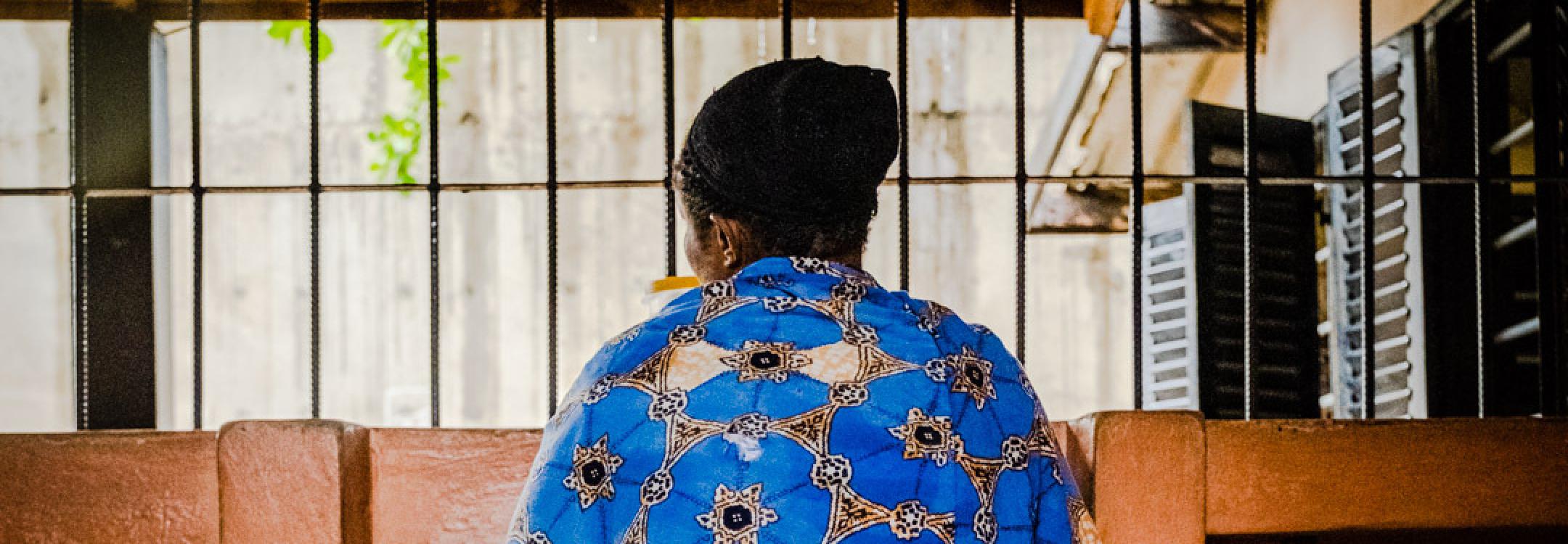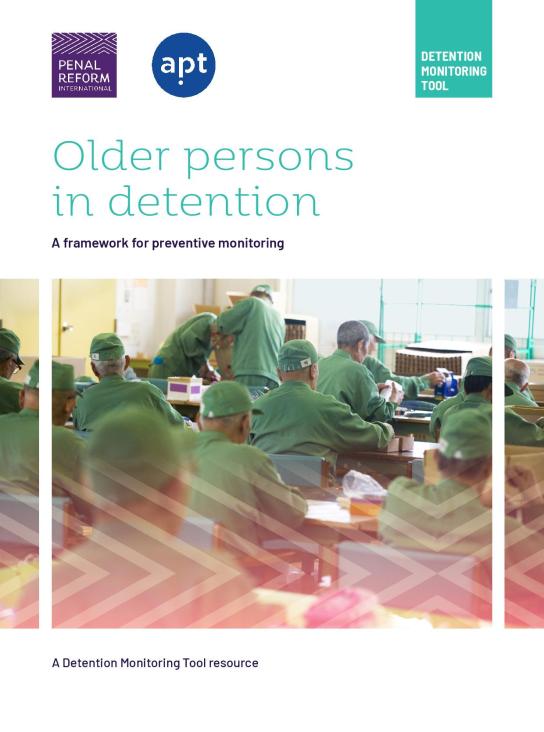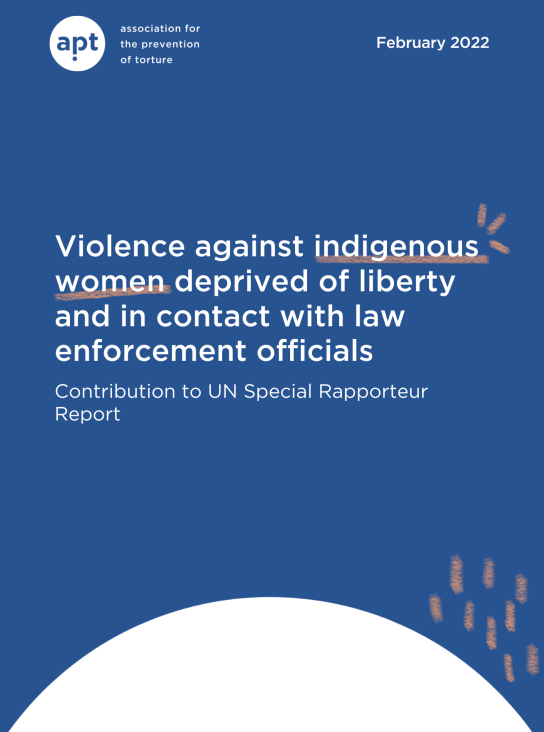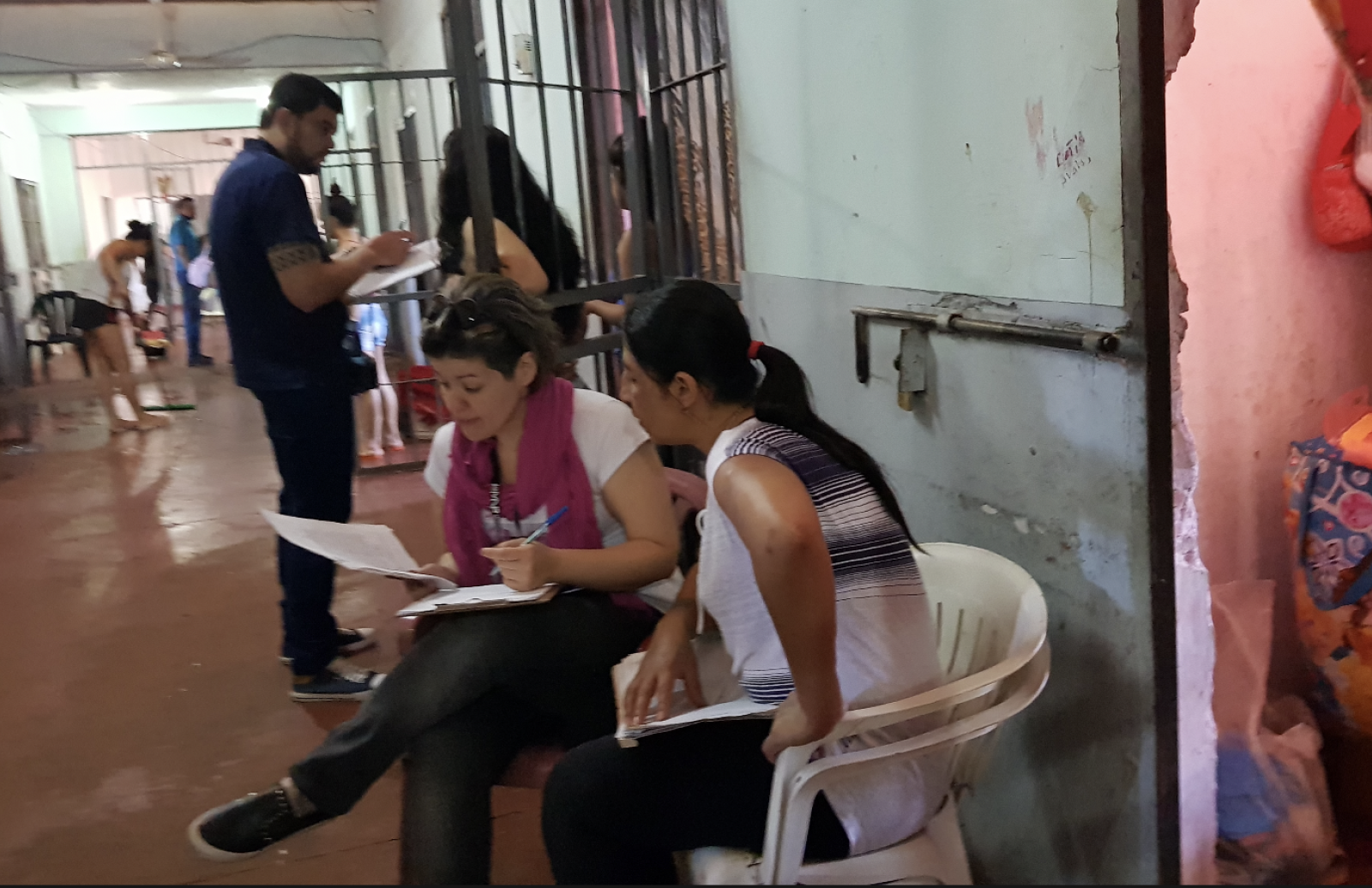
Anyone deprived of liberty is at risk of torture and ill-treatment. However, some groups of people can face situations of heightened vulnerability in detention, where the discrimination and abuse they face in the community can be magnified.
It is vital that detaining authorities, oversight bodies and others in the criminal justice system develop an intersectional approach to torture prevention. This supports them to respond to the full range of detainees in their care and the different risk factors they may encounter when deprived of liberty.
WHO IS IN A SITUATION OF VULNERABILITY?
Children are one of the most vulnerable groups in detention because of their age and stage of maturity. Detention has long-term damaging effects on their well-being and development. Detention rarely responds to a child's individual characteristics and specific needs, including their need for appropriate education, contact with family and the wider community, and sport and recreation. Detention often intensifies their vulnerability to discrimination, abuse, violence, poor living conditions, and inadequate health care and nutrition.
Read more
Foreigners are usually detained in detention facilities, such as police stations or prisons, alongside nationals of the country. They can face heightened risks of abuse or ill-treatment as they are outside their countries of origin or nationality, unfamiliar with the legal context and sometimes unfamiliar with the language. They may not have a strong family or community support networks available to them. This can have serious psychological effects, as well as deprive them of external physical support, such as food and clothing.
Read more
LBGTI+ persons can face heightened risks of abuse and ill-treatment, from the moment of their arrest, during their detention and even afterwards. In many countries, LBGTI+ persons may be arrested solely based on their sexual orientation or gender identity, even if such an arrest is not authorised by the legislative framework. LBGTI people are therefore exposed to the risk of arbitrary detention, blackmail, humiliation, ill-treatment and sexual violence. The considerable imbalance of power during questioning by law enforcement agencies carries particular risk for LGBTI people, especially in relation to confessions obtained under duress. They can also face targeted harassment and violence while in detention.
Read more
Minority groups and indigenous peoples are commonly overrepresented in custody.
Upon their arrest and during each phase of the trial and detention process, people from indigenous communities and minority groups should have access to interpreters and information about their rights in a language they understand. When this right is not upheld, they do not have the same access as others to the complaints and appeals system and are therefore more vulnerable to all types of abuse. Higher levels of illiteracy and limited knowledge of the functioning of the justice system can reinforce their vulnerability. When detained, minorities and indigenous peoples are subject to higher levels of institutional violence, which is commonly overlooked, neglected or unpunished by prison management. They are more likely to be victims of segregation and are more often assigned to maximum security areas, even when the nature of the offence or crime does not justify it. Their parole applications are more frequently denied.
Read more
Persons with disabilities comprise a significant proportion of the prison population worldwide and include persons with mental health issues or illnesses, learning or intellectual disabilities, and physical disabilities. Prisons tend to exacerbate poor health conditions and reinforce pre-existing disabilities. Inadequate health care and services often results in these detainees being more likely to break rules and to exhibit behavioural problems. They are also less likely to obtain bail and therefore to stay in prison for longer periods. All persons with disabilities in detention are exposed to higher risks of discrimination and victimisation, both from staff and other detainees. They may also be held in specific areas, in worse conditions.
Read more
Discrimination against women in society is reflected and often exacerbated in prison settings. Prisons, designed by men for men, often fail to take into account the specific needs of women. Women detainees can be vulnerable even before they enter prison because of the violence or discrimination they have suffered. Many have a past marked by domestic violence, exploitation, drug use, drug trafficking and poverty. When detained, they can be at risk of physical and mental violence and abuse by prison staff and fellow inmates, while invasive body searches can be traumatic and humiliating. Women from indigenous or ethnic minority groups, women with disabilities, lesbians, and women living with HIV/AIDS face additional challenges and risks of abuse and discrimination when incarcerated.
Read more
WHAT DOES TORTURE PREVENTION LOOK LIKE?
Increased visibility of persons in situations of vulnerability reduces the risk of torture and ill-treatment.
Monitoring bodies ensure specific attention for persons in situations of vulnerability and develop recommendations that respond to their needs.
Changing narratives and perceptions regarding persons in situations of vulnerability when deprived of liberty reduces the risk of torture and ill-treatment.
Eliminating discrimination and promoting equality in society, and respecting the specific needs of detained persons in situations of vulnerability, increases their protection.
HOW DOES THE APT CONTRIBUTE?
We support NPMs globally, with a current focus in eight countries, to strengthen their work to monitor the situation of women and LGBTI+ persons deprived of liberty.
We provide online training and resources for oversight bodies to uphold the rights of women and LGBTI+ persons deprived of liberty.
We engage with detaining authorities and others in the criminal justice system to raise awareness of the issues facing persons in situations of vulnerability and advocate for alternatives to their detention.
We prepare submissions for international and regional human rights bodies and experts when they develop guidance and jurisprudence on the rights of persons in situations of vulnerability.


